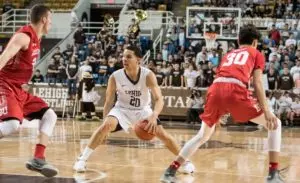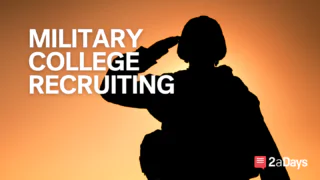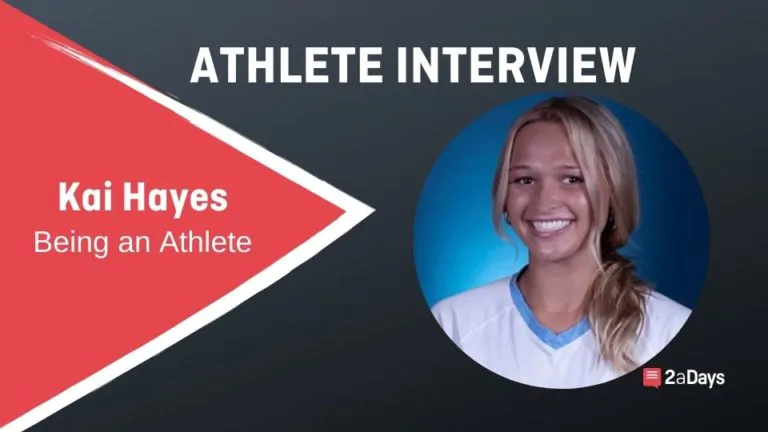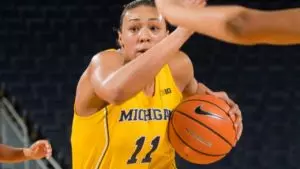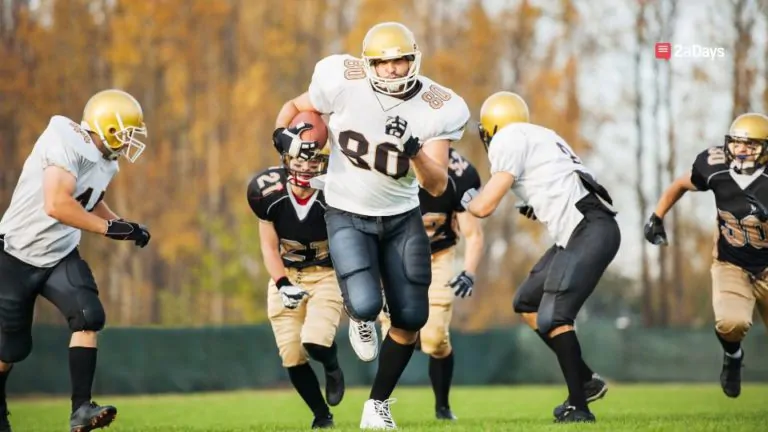As a Division 1 rower for the George Washington University, I can remember the day my rowing world stood still. On March 12, 2020, the NCAA canceled all spring championships, followed that afternoon by GW's conference, the Atlantic 10, announcing our conference championship's cancellation. My team huddled together that night, desperately searching for the words none of us had, not even our coaches.
The unfortunate truth is we wouldn't ever really have the words or answers we were looking for. A supposed “3-week vacation” from campus quickly evolved to the end of a semester, the threat of fall online, and the emergence of a sobering fact: this is not going away. As a collegiate athlete at GW, you are taught your studies come first, then athletics, and then everything else. So, with our foreseeable college experience in jeopardy, the next question on everyone's mind seemed to be, “what does my collegiate sports career look like?”
For rowers across the country, this is a huge question. Nearly every rowing competition for the summer and fall has either been delayed or canceled. All USRowing regattas have been canceled for the remainder of the year, except for virtual regattas. Remaining socially distant means no team practices, which can be a key part of the motivation to stay in shape.
A saying in crew often uttered by my past coaches, “Take one day off and lose two days of progress.” Rowing is an incredibly fitness-based sport; it's nearly impossible to mimic the physical rigor of a 20-Hour practice schedule from your living room. Many don't have an erg at home, let alone access to a boat or a body of water to use it on. Like it has for most people, the conversation has quickly shifted to “When can we reopen; when can I row again?”
I feel rowing is a sport better equipped to handle the Coronavirus than most. It's a no-contact sport in the open air, where athletes can take out singles to avoid being too close to each other. But just like everything else right now, serious precautions need to be taken. Boats constantly need to be cleaned, masks need to be worn at all times, and the frequency of testing and abundance of caution needs to stay at the forefront of everyone's minds. Even with all of this in place, the next big regatta is nowhere in sight.
The question that remains is, how can I return to row, even if I can't compete? The USRowing website has provided Coronavirus Information and Guidelines for reopening boathouses across the country. Those guidelines suggest a “get in – row – get out” type of mentality, keeping common spaces closed and sticking to singles for the time being.
Larger boats will have to wait for the infection rate in their area to drop below 50 for every 100,000 people. Once teams reach that threshold, it's suggested that athletes row with the same people each day to avoid new contact.
A teammate of mine from the Division 1 Women's Rowing Team at The George Washington University was able to get out on the water and speak about her experience:
“I was able to row last weekend in a single for my high school team, Connecticut Boat Club. There was a limit of 10 rowers in the group, and we had to wear a mask on the dock and around the boathouse, but we could take it off once we launched. It was definitely very different, but either way, I'm grateful to be still able to do the sport I love during these tough times!”
Staying in shape and not losing touch with form is one challenge rowers face in the pandemic world, but many athletes, especially high school rowers, have legitimate fears about how the Coronavirus will affect the college recruitment process.
The NCAA extended the recruiting dead period to August 31, 2020. A dead period refers to a period of time when college coaches cannot meet with potential recruited athletes face-to-face. However, online communication is still permitted.
Canceling summer regattas takes a serious toll on the rowing recruitment world because after test scores in the classroom and on the erg, success at summer regattas – whether regional, national, or world-wide – is often the next thing coaches look for. While necessary for public health, taking away these medalling opportunities, in addition to an increased in-person recruiting dead period, will leave athletes and coaches alike out of touch and with any questions.
In some regard, it may level the playing field for many high school athletes who otherwise would not have the chance to compete at high-level summer regattas. So if there is a silver lining to the new adjustments the rowing world has to make due to COVID-19, it is that high school rowers, more than ever, have an equal chance to earn their spot on their dream team. Though there is a dead period right now, recruitment has not stopped. Online communication is not only allowed but will become a significant crutch for college coaches looking for their 2025 and 2026 classes.
With that comes an understanding from coaches that the recruiting world is not the same as it has been in years past. Many high school athletes with dreams of NCAA or IRA competition won't even have access to an erg for the foreseeable future.
So if you face the formidable challenges of college rowing recruitment through a pandemic, do not underestimate the importance of communication! Reach out to coaches more than ever, tell them the inventive ways you are exercising and staying in shape, and make it clear that despite impossible odds, your spirit is unwavering. So much of rowing is mental, and while you may not have a national championship to your name, the biggest race, the biggest competition is still ahead of you: how are you going to prove your dedication?
There is no one right answer, but the opportunity is yours to make. Like the 3rd 500 of a 2000m race, you are the only one who can make that decision to go: don't give in, push through the pain, find the extra inches, and most importantly, do not let fear control you. More than most, rowers know how to take in new information and not let that information control their own reaction. Rowing is hard, and yes, a pandemic is harder; but rowing teaches you to find new parts of yourself and reach new limits you never thought you would. Your character should not be underestimated; rowing requires a fight, and this pandemic is the perfect opportunity to show college coaches what you are made of. The recruiting world waits for you: how will you rise to the occasion?
* Originally published on March 29, 2021, by Lauren Bennett


